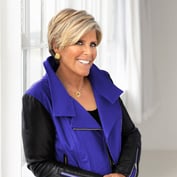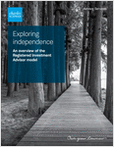What You Need to Know
- The number of female CFP professionals increased by a mere 0.2% to 23.7% over the past year, according to Carson Group.
- Female advisors are increasingly becoming the preferred choice for addressing the needs of female clients.
- Ninety percent of respondents agreed that corporate or firm culture significantly influences their work satisfaction.
Women are critically important to financial services because they are equipped to address the needs of clients and bring a variety of skills to the role, according to a report released Tuesday by Carson Group. And current trends indicate that more women are needed in the industry.
Yet, the share of female CFP professionals increased by a mere 0.2% to 23.7% over the past year, the report said, citing the Certified Financial Planner Board of Standards.
“The findings of our 2023 Women in Wealth Management study reinforce the crucial role that female financial advisors play in today’s industry,” Julie Ragatz, vice president for next generation and advisor development programs at Carson Group, said in a statement. “Beyond the qualitative insights, the statistical data underscores the need for continued efforts to enhance gender diversity, promote sponsorship and create inclusive cultures.”
The findings are based on a study that Carson Group conducted via SurveyMonkey this year among 276 financial advice professionals from different channels. About 84% of respondents were women, 14% were men and 1% preferred not to identify. Their average age was 48, and they had been in the industry an average of 19 years.
Underrepresentation
With regard to industry representation, the study found that 92% of women but only 68% percent of men agreed that female advisors are underrepresented in the industry. It noted that with women now outliving men by about five years in the United States, female advisors are increasingly becoming the preferred choice for addressing the needs of female clients.
Their underrepresentation can hurt firms that are not staffed appropriately to meet the changing needs of their clients, it said.
Carson Group’s study notes that women are expected to control $30 trillion in financial assets because of wealth transfers, and that 70% of women change advisors within a year of losing their partner, according to research by McKinsey & Co.
The study emphasizes female advisors’ ability to connect on a deeper level, fostering trust and building strong client relationships. The qualitative analysis also found that many women in executive positions prefer working with female advisors who can truly relate to their experiences.
One corrective measure the financial services industry can take to address the female advisor shortfall is to better educate high school and college students about the potential career paths available to them.












 Copyright © 2024 ALM Global, LLC. All Rights Reserved.
Copyright © 2024 ALM Global, LLC. All Rights Reserved.